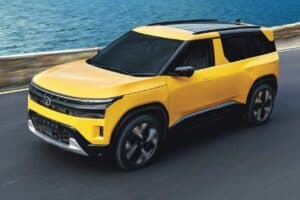Focus on ultimate electrification has left no place for diesel in its entire product range.

Its demise hinted back in 2017, Volvo has officially ended its reliance on diesel motivation as per its move towards electrification by 2030.
End of an era
While sales of its “D” badged oil-burners wrapped in South Africa last year after the unveiling of the facelift XC40, certain markets in Europe still had the option of the in-house developed 2.0-litre Drive-E engine in the S90 and XC90.
ALSO READ: Volvo waving goodbye to diesel in 2024 as EV switch continues
Its usage of diesel engines involving not only its own, but famously the off-the-shelf 2.4-litre normally aspirated and turbocharged six-cylinders unit from Volkswagen in the 1980s and later, Ford when it formed part of Dearborn’s so-called premier group of brands, the final oil-burning Volvo, an XC90, left the Torslanda Plant on Tuesday (26 March) bound for the Volvo museum in Gothenburg.
According to Automotive News Europe, the end of diesel also brings the curtain down on the specific variant of Drive-E engines that replaced the Ford mills, co-developed by the erstwhile PSA Group – now Stellantis – the bulk of Volvos utilised before the brand’s offloading to China’s Geely 14 years ago.
Seven years on the chopping block
Once the fuel type that made-up the bulk of Volvo’s sales between 2012 and 2016, according to the publication, the final XC90 brings the total of diesel engine inserted into Volvos since the commencing of records in 1991, to nine million, though it is likely to be more given the unaccounted number of Volkswagen engine models produced since 1979.
“From today’s perspective, we will not develop any more new-generation diesel engines. In this area, there should also be space for us, with high quality and attractive design,” former CEO, Håkan Samuelsson, told Germany’s Frankfurter Allgemeine Zeitung in 2017.
In a follow-up to Britain’s Auto Express 12 months later, Samuelsson reiterated more could be done with electrification than diesel, saying, “if we want to be faster in electrification, we can’t say yes to everything. We are not planning to have a diesel alternative in any new cars”.
Confirming the end of diesel engine production by the middle of 2024, current CEO Jim Rowan said the benefits of EVs nullifies the prolonging of oil-burners on the back of Volvo wanting a 50/50 sales split between hybrid and electric vehicles come 2025.
At present, all of the marque’s products feature electrification in the form of mild-hybrid, plug-in hybrid or full electric powertrains.
“We’re fully focused on creating a broad portfolio of premium, fully electric cars that deliver on everything our customers expect from a Volvo − and are a key part of our response to climate change,” Rowan remarked in a statement as part of New York Climate Week last year
EV thrive in South Africa
In South Africa, the current all-electric line-up comprises the XC40, C40 Recharge and the newly introduced EX30, while the range of plug-in hybrids consists of the T8 derivatives of the XC60, XC90 and S90.
“With local demand for electrified vehicles growing steadily, this move (introduction of the XC40 P6 and P8 Recharge), brings us in line with Volvo’s global ambition of transforming into a fully electric car company by 2030,” Volvo Car South Africa Managing Director Greg Maruszewski said in 2022.
So far, the gradual switch towards electrification has resulted in the P8 and P6 Recharge versions of the XC40 selling-out in four days and 24 hours respectively, while orders for the EX30, whose official reveal took place last month, already exceeded 150 orders in September last year.
With production only starting at the end of the year, a fourth model, the EX90, could well be added to the local line-up, but only in 2025 should eventual approval be given.
Support Local Journalism
Add The Citizen as a Preferred Source on Google and follow us on Google News to see more of our trusted reporting in Google News and Top Stories.






